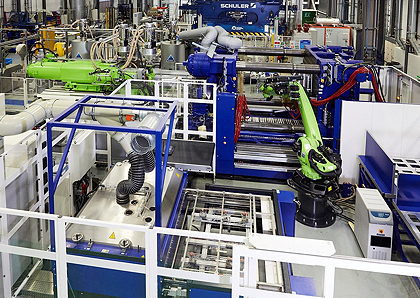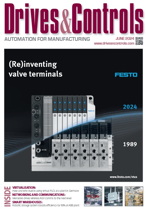5G in manufacturing project goes live in Bristol

The first phase of a pioneering project to assess the potential benefits of 5G wireless communications for UK manufacturers, has gone live with the switching on of a private industrial 4G network at the National Composites Centre (NCC) in Bristol. The installation – part of the Government-backed 5G-Encode project – will establish a baseline using existing 4G technologies before a second phase, using 5G, goes live next year. The performance of the two technologies will then be compared.
The aim of the project – designed by Zeetta Networks and the University of Bristol’s Smart Internet Lab – is to prove the value of 5G and demonstrate the extent to which manufacturers will get a return on investment from deploying private cellular networks.
5G-Encode is a £9m collaborative project that is developing business cases for 5G applications in UK manufacturing. It is partially funded by the Department for Digital, Culture, Media and Sport as part of its 5G Testbeds and Trials Programme. The project is being run by a consortium of nine partners: Zeetta Networks; the National Composites Centre; Mativision; Plataine; Solvay; Toshiba; Telefonica; Siemens; and the University of Bristol’s Smart Internet Lab.
With the phase one 4G network now installed, the focus will be on testing asset-tracking and AR/VR (augmented and virtual reality) applications. Data will be gathered on network performance, user experiences and business benefits. This will be repeated for the 5G network and the two systems will then be analysed and compared.
“The use cases being explored will be integral to accelerating Industry 4.0,” says Vassilis Seferidis, co-founder and CEO of Zeetta Networks. “Phase one is just the beginning, and we’re confident that this project will be key to revitalising the UK’s manufacturing industry and safeguarding it against the next global recession”.

5G promises significant potential benefits for manufacturers, including streamlining their operations and boosting their productivity. The NCC network will be used to explore new business models and 5G technologies, including network slicing and splicing, in an industrial environment. It will focus on three areas:
● using AR/VR to support design, manufacturing and training;
● monitoring and tracking time-sensitive assets; and
● wireless real-time in-process monitoring and analytics.
Xavier Priem, senior research fellow at the Smart Internet Lab, predicts that “our work will be fundamental in introducing new capabilities into Industry 4.0 processes and systems which will provide more flexibility”.





